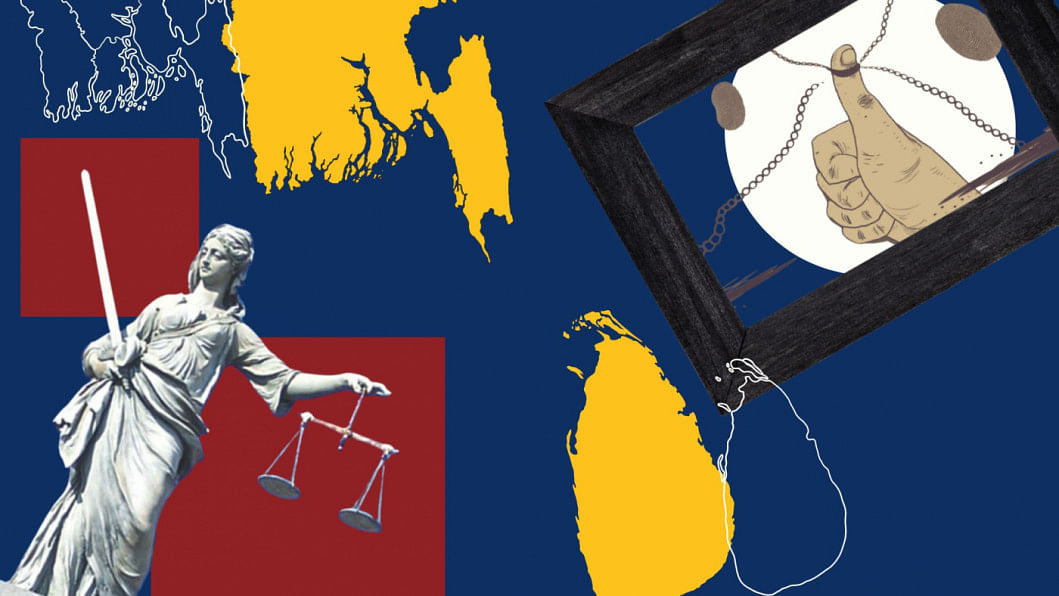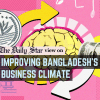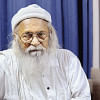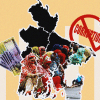Current dynamics of the economy, reform and elections

The student-led mass movement in July-August 2024 marked a significant turning point in Bangladesh's sociopolitical and economic history. This movement emerged in response to widespread grievances among people from all walks of life. Unemployment reached alarming levels, leaving millions of youth disenchanted and directionless. Under the false narrative of a growth miracle, economic discrimination further deepened societal divides, with wealth concentrated in the hands of a few while the majority struggled to make ends meet. The absence of democracy was palpable, with limited opportunities for citizens to express their choices through free and fair elections. Fundamental rights, including freedom of speech, were systematically curtailed, fostering an environment of fear and suppression. Corruption was pervasive across all levels of governance, eroding public trust and stifling economic, social, and political progress.
In the wake of the movement, an interim government was formed amid high expectations from all quarters. It was entrusted with the dual responsibilities of steering the nation towards economic stability and implementing political and institutional reforms. However, that journey has been fraught with challenges.
Political parties wholeheartedly supported the interim government and displayed prudence by appreciating its efforts to address the country's accumulated problems over decades. However, as time progresses, some have called for the national election as soon as possible as the reform process continues simultaneously. The students—aspiring to form their political entity and participate in the upcoming national election—favour delaying elections until substantial reforms are implemented. It is widely believed that students desperately need time to organise their parties, which has so far proven to be tough for them. Many citizens, who have had enough of the defective and dysfunctional political system that gave rise to autocracy and rampant corruption undermining all rights, also want the election after substantive reforms.
Several reform commissions were established to chart a path towards a democratic and just society. Their recommendations addressed critical issues, including constitutional, electoral, anti-corruption, and police reforms. Other commissions are also set to place their recommendations to the chief adviser. However, implementing these recommendations requires political consensus and commitment—a daunting task given the divergence of positions on reforms and the interests of political parties.
The proposals of some commissions, particularly those regarding the constitutional reform, have given rise to many discussions as to which proposal recommendations should be included and which should not. Removing secularism as a pillar of the constitution, reducing the minimum age of election candidates to 21 years, and introducing a two-tier parliament with a national assembly and senate are some of the issues that sparked debates, reflecting the diverse perspectives within the nation. Such debates are healthy and can contribute to refining the proposals. Moreover, as reform is a continuous process, there should always be opportunities for improvement.
A close observation of the current discussions of reforms and elections in Bangladesh reveals that some are trying to sequence these two crucial tasks: reforms first, then the election. But in reality, the interplay between reforms and elections cannot be phased. Reform and elections are not mutually exclusive—both can be pursued in parallel. Reform is a prolonged and iterative process. It is also an ongoing endeavour that spans years, even decades. Elections, on the other hand, provide a mechanism for citizens to express their choices and hold leaders accountable. Hence, discussions that implicitly suggest that reforms should only be done after the national election don't hold water. This reminds us of the futile debate by Awami League politicians and some intellectuals about development and democracy, aimed at promoting their corrupt development model and undermining the importance of democracy.
Amid the political complexities, economic challenges have persisted. Inflation remained high at 10.89 percent in December 2024, eroding the ordinary citizens' purchasing power. Private and foreign investment stagnated due to an unfavourable business environment. Investor uncertainty about the political situation remains high. The tax-GDP ratio, a critical indicator of fiscal health, remained dismally low at less than eight percent, while the implementation of the Annual Development Programme (ADP) lagged behind targets. Meanwhile, the World Bank has projected that economic growth during the ongoing FY2024-25 will be 4.1 percent. Even without the World Bank's prediction, economists can say that such low growth is not unexpected during a turbulent year when investment and production were low, and severe floods hampered economic activities.
Although an increase in exports and remittances halted the freefall of foreign exchange reserves, the overall volume of forex reserves remained insufficient to support robust import growth. Depreciation of the taka further compounded economic difficulties, raising the cost of imports and hindering investments and production. Meanwhile, the National Board of Revenue (NBR) struggles to meet its revenue collection targets, exacerbating fiscal constraints. Missing the NBR target has persisted for about a decade due to high tax evasions, a narrow tax net, illicit financial flows, and several undue tax exemptions to specific business groups, organisations, and individuals over several years. The perceived fear among the public of complexities and harassment by the tax department, and the lack of adequate services in return for tax contributions, further discourage compliance. The government's limited fiscal space also curtailed its ability to expand social safety nets for the poor and low-income households, which are most vulnerable to inflationary pressures.
The interim government expanded its responsibilities to encompass a wide array of issues within a limited period. Though, initially, the interim government's tenure was unclear, many felt that an unelected and non-political government consisting of well-meaning but inexperienced people—some of whom ran non-government organisations (NGOs) while others were senior retired bureaucrats—cannot govern the country for long unless backed by the military. Along with political uncertainty and economic challenges, the law and order situation weakened and must be improved to ensure people's safety. Rent-seeking, corruption, bribes, and administrative hassles have not disappeared either.
Although public expectations for the interim government have been initially high, it is evident that patience is waning due to the slow pace of progress on these pressing issues.
Uncertainty about the fate of reform proposals is also a critical issue. A national consensus commission, led by the chief adviser, plans to engage with political parties and stakeholders to identify areas of consensus and recommend actions. This is critical since the reform agenda will have to be implemented by the elected government. However, concerns over the implementation of reform proposals remain. Will the elected government accept reform recommendations fully or partially? What if the elected government sets aside the reform proposals altogether and designs its reform agenda conveniently? What will be the oversight and accountability mechanism for implementing reforms?
While the interim government's intention to tackle political and economic challenges is commendable, the task appears daunting. Striking a balance between the demands of reform, the organisation of a free andfair election, and economic recovery has thus far proven to be a formidable challenge for it.
Dr Fahmida Khatun is executive director at the Centre for Policy Dialogue (CPD) and non-resident senior fellow at the Atlantic Council.
Views expressed in this article are the author's own.
Follow The Daily Star Opinion on Facebook for the latest opinions, commentaries and analyses by experts and professionals. To contribute your article or letter to The Daily Star Opinion, see our guidelines for submission.


 For all latest news, follow The Daily Star's Google News channel.
For all latest news, follow The Daily Star's Google News channel. 









Comments